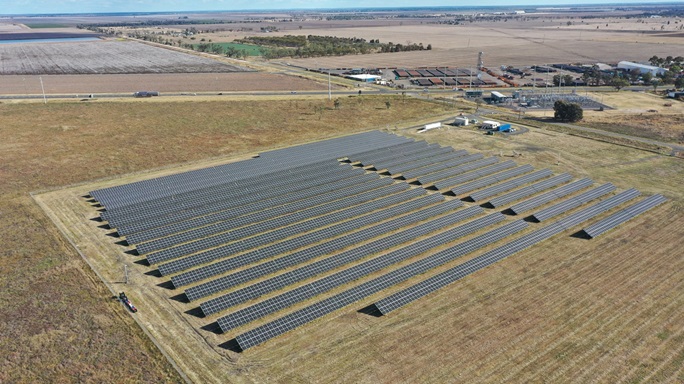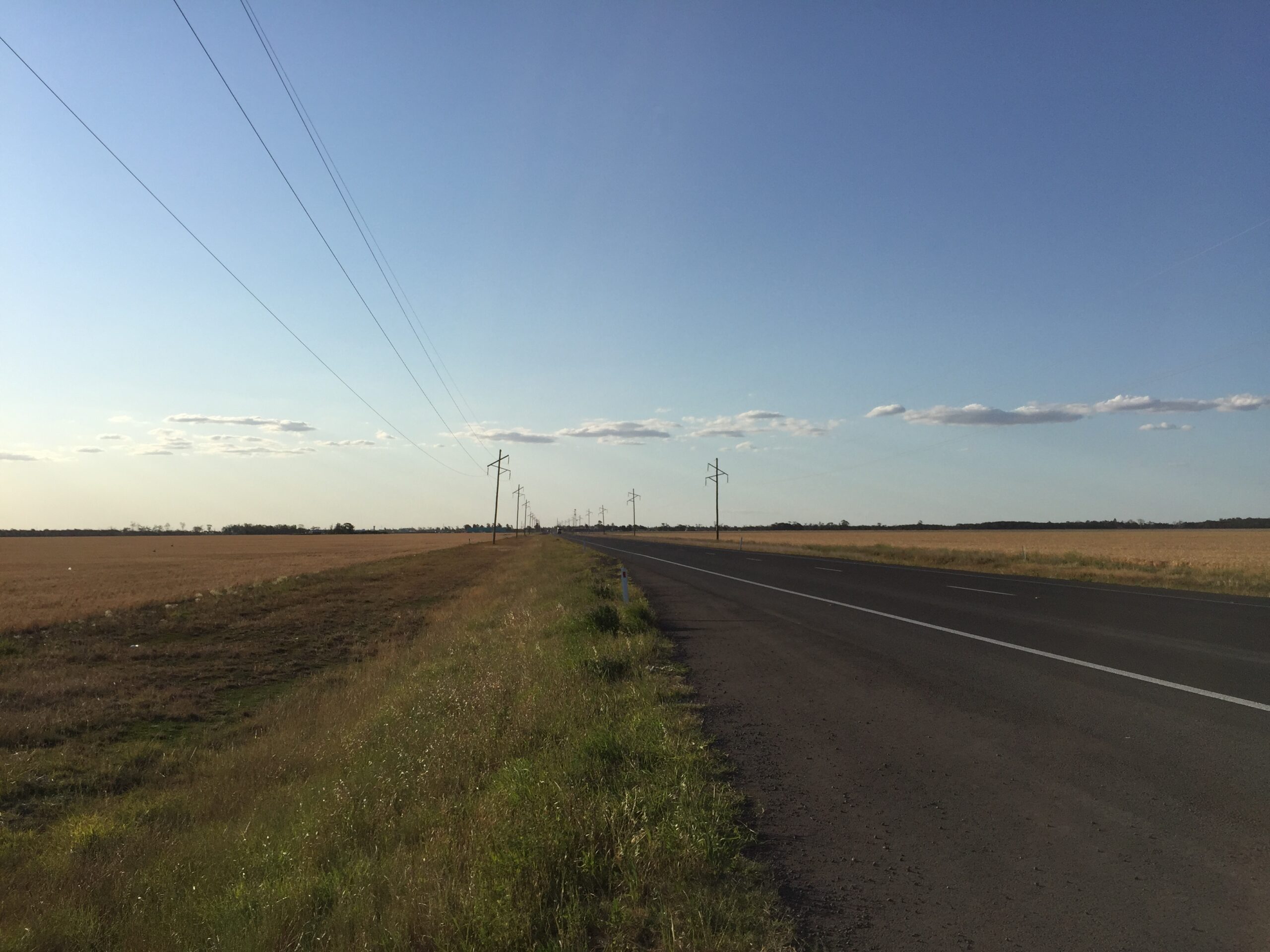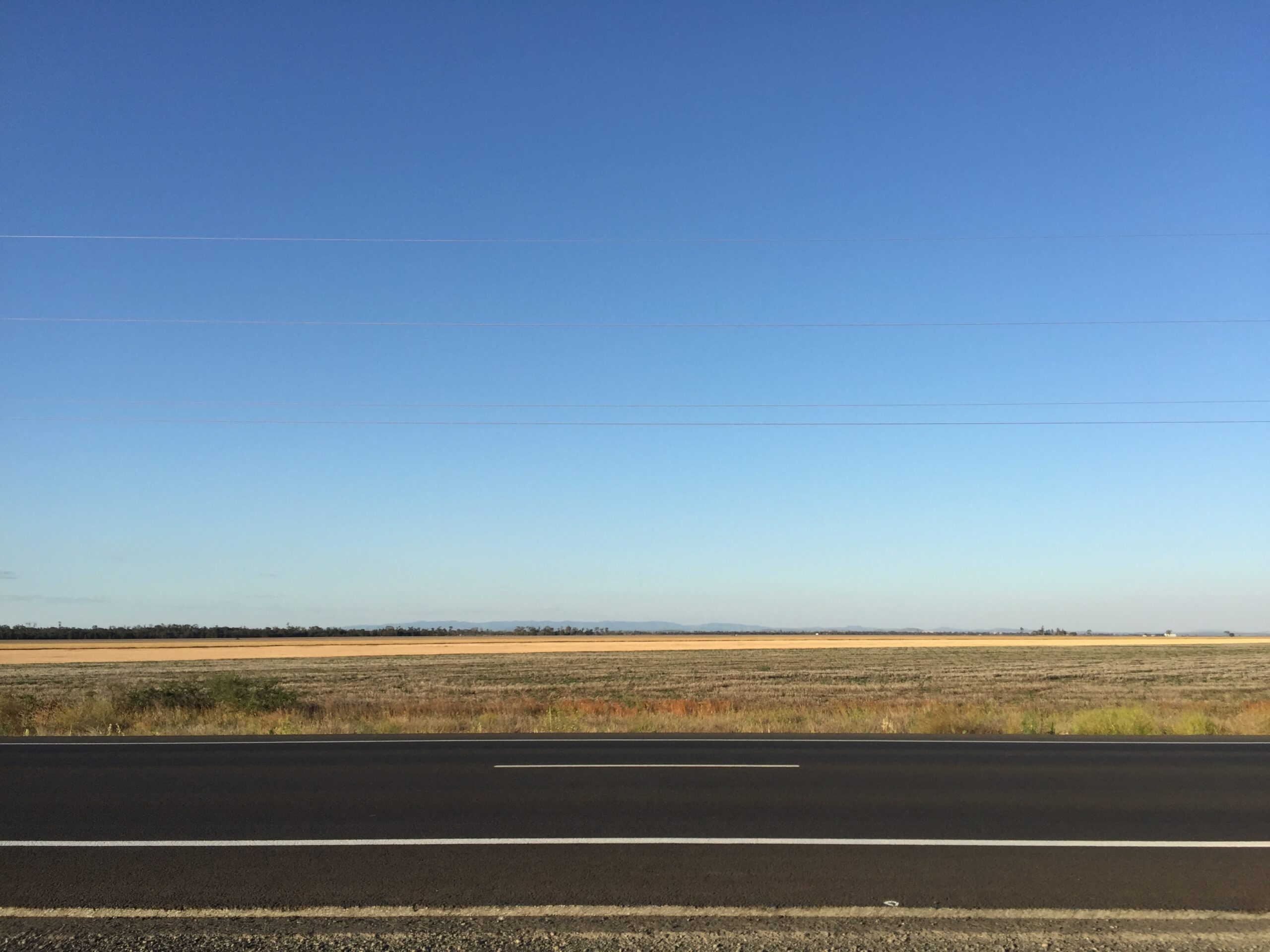
Summary
Dalby I is a hybrid project that consists of a 2.45MW dc solar PV array with 2.54MW / 5MWh of BESS, located approximately 200km northwest of Brisbane and 4km south-east of Dalby in Queensland, Australia.
The facility will be one of the first co-located PV and BESS system greenfield developments in Australia.
Development Approval was obtained in May 2020 and we obtained connection Approval / CPS in December 2020.
The plant’s output will be connected to Ergon’s distribution network, allowing the hybrid power plant to supply and take electricity from the grid and trade in the National Electricity Market.
Early Works have commenced, BESS procurement contract and Connection Agreement executed in January 2021.
Construction will be completed in December 2021 and the facility has an operating life of around 30 years.
Overview


Community value
Dalby Hybrid Facility represents a positive diversification of the local economy and brings investment to the area. It delivers additional indirect economic opportunities to local businesses including local grocery stores, restaurants, cafés, accommodation providers, petrol stations, vehicle servicing, pubs, catering, cleaning companies, tradespersons, tool and equipment suppliers and many other businesses.
Dalby Hybrid Facility is expected to create job opportunities during construction and operations. FRV requires all contractors working on its solar farm developments to hire local contractors and utilise local suppliers wherever possible. It is estimated that up to around 40 workers will be required to construct the project and during operations (2021 to 2051) ongoing operational roles will be created. Maintenance contracts for panel cleaning, fence repair, road grading, etc. will also be required and would likely be met by local contractors.